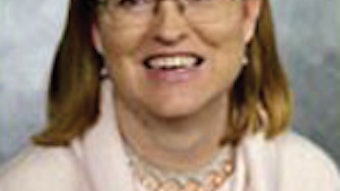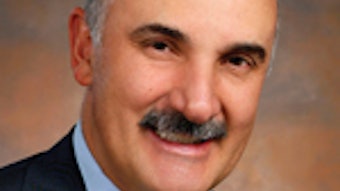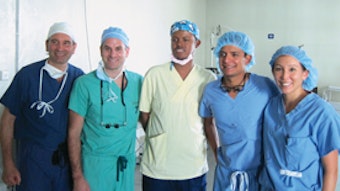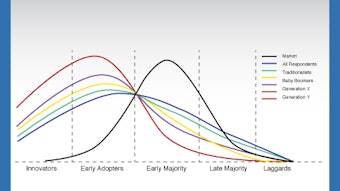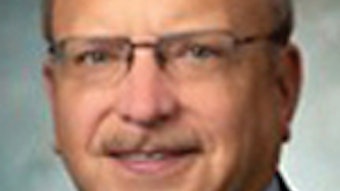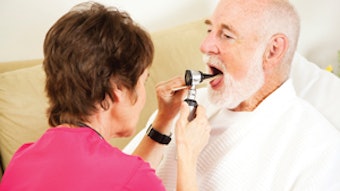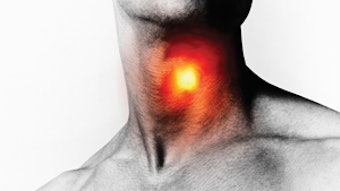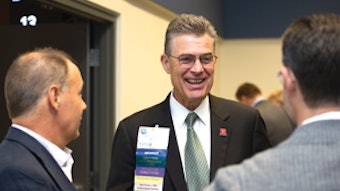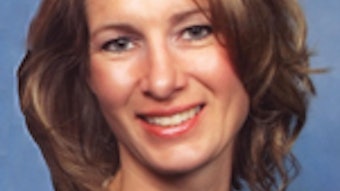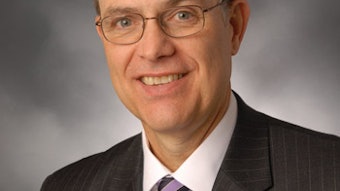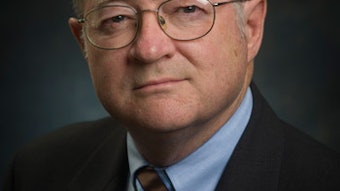Key AMA Policy Changes Affecting Our Specialty: Interim Meeting Recap
Liana Puscas, MD Chair, AAO-HNS Delegation to the AMA House of Delegates The American Medical Association (AMA) conducted its 2013 Interim Meeting November 15-19, at National Harbor, MD. Delegates included Liana Puscas, MD (delegation chair); Michael S. Goldrich, MD; Shannon P. Pryor, MD; and Robert Puchalski, MD. At the meeting, Dr. Pryor served as the chair of Reference Committee F (Finance and Governance) and Dr. Puchalski was re-elected Secretary of AMPAC. David Nielsen, MD, AAO-HNS EVP/CEO, served as alternate delegate, with staff support from the AAO-HNS Government Affairs and Health Policy teams. Below is a summary of key issues discussed at the meeting affecting otolaryngology-head and neck surgery. Defining Team-Based Care Reflective of myriad practice patterns in the U.S., the AMA House of Delegates (HOD) was unable to agree on the best language regarding the definition of the terms “physician-led, collaborative, and supervision,” so the Board of Trustees will continue to research and refine the language with the expectation that consensus will be reached at AMA’s annual meeting in June 2014. FDA Oversight of Tobacco/Nicotine Products The AMA HOD adopted policy urging the U.S. Food and Drug Administration (FDA) to immediately implement the deeming authority written into the FDA tobacco law to extend FDA regulation of tobacco products to pipes, cigars, hookahs, e-cigarettes, and all other non-pharmaceutical tobacco/nicotine products not currently covered by the FDA tobacco law. SGR Strategies The AMA conducted a candid discussion regarding strategies to repeal the Sustainable Growth Rate (SGR) payment formula. With the current climate being the best it has been to finally achieve success on this issue that is so important to physicians, all of organized medicine is working hard to make this goal a reality. ICD-10 Implementation There were continued appeals to either further delay or completely rescind implementation of ICD-10. Whereas most hospital systems and larger practices have already moved toward use of ICD-10 prior to its October 1, 2014, mandatory implementation, many others without a robust IT infrastructure have not. Physicians are concerned about the cost and the timing since it overlaps with many other significant changes occurring in healthcare. While the AMA was able to achieve a one-year delay in the implementation from 2013 to 2014, it is unlikely that CMS will approve a further delay. Represent the Specialty, Join AMA The next meeting of the AMA House of Delegates will take place June 7-11 in Chicago, IL. Of note, the AAO-HNS should try to increase its AMA membership. AMA delegations are in proportion to an organization’s number of AMA members, and in order to keep our four delegates and help maintain otolaryngology’s representation in the HOD, it is necessary that we grow our AMA membership. Many have disagreed with some of the AMA’s positions, but it is still the best voice for medicine as a whole, and increased participation is the only way to influence actions taken by the AMA. Our delegation is small, but all four members currently are or recently have been actively involved in leadership within the organization serving on councils, reference committees, and the AMA’s political action committee. Although we may be few in number, we are strong in voice, and that helps keep otolaryngology’s perspectives and issues on the radar. Questions about this report and other AMA HOD activities, please email govtaffairs@entnet.org.
 The next meeting of the AMA House of Delegates will take place June 7-11 in Chicago, IL.
The next meeting of the AMA House of Delegates will take place June 7-11 in Chicago, IL.Liana Puscas, MD
Chair, AAO-HNS Delegation
to the AMA House of Delegates
The American Medical Association (AMA) conducted its 2013 Interim Meeting November 15-19, at National Harbor, MD. Delegates included Liana Puscas, MD (delegation chair); Michael S. Goldrich, MD; Shannon P. Pryor, MD; and Robert Puchalski, MD. At the meeting, Dr. Pryor served as the chair of Reference Committee F (Finance and Governance) and Dr. Puchalski was re-elected Secretary of AMPAC. David Nielsen, MD, AAO-HNS EVP/CEO, served as alternate delegate, with staff support from the AAO-HNS Government Affairs and Health Policy teams.
Below is a summary of key issues discussed at the meeting affecting otolaryngology-head and neck surgery.
Defining Team-Based Care
Reflective of myriad practice patterns in the U.S., the AMA House of Delegates (HOD) was unable to agree on the best language regarding the definition of the terms “physician-led, collaborative, and supervision,” so the Board of Trustees will continue to research and refine the language with the expectation that consensus will be reached at AMA’s annual meeting in June 2014.
FDA Oversight of Tobacco/Nicotine Products
The AMA HOD adopted policy urging the U.S. Food and Drug Administration (FDA) to immediately implement the deeming authority written into the FDA tobacco law to extend FDA regulation of tobacco products to pipes, cigars, hookahs, e-cigarettes, and all other non-pharmaceutical tobacco/nicotine products not currently covered by the FDA tobacco law.
SGR Strategies
The AMA conducted a candid discussion regarding strategies to repeal the Sustainable Growth Rate (SGR) payment formula. With the current climate being the best it has been to finally achieve success on this issue that is so important to physicians, all of organized medicine is working hard to make this goal a reality.
ICD-10 Implementation
There were continued appeals to either further delay or completely rescind implementation of ICD-10. Whereas most hospital systems and larger practices have already moved toward use of ICD-10 prior to its October 1, 2014, mandatory implementation, many others without a robust IT infrastructure have not. Physicians are concerned about the cost and the timing since it overlaps with many other significant changes occurring in healthcare.
While the AMA was able to achieve a one-year delay in the implementation from 2013 to 2014, it is unlikely that CMS will approve a further delay.
Represent the Specialty, Join AMA
The next meeting of the AMA House of Delegates will take place June 7-11 in Chicago, IL.
Of note, the AAO-HNS should try to increase its AMA membership. AMA delegations are in proportion to an organization’s number of AMA members, and in order to keep our four delegates and help maintain otolaryngology’s representation in the HOD, it is necessary that we grow our AMA membership. Many have disagreed with some of the AMA’s positions, but it is still the best voice for medicine as a whole, and increased participation is the only way to influence actions taken by the AMA. Our delegation is small, but all four members currently are or recently have been actively involved in leadership within the organization serving on councils, reference committees, and the AMA’s political action committee. Although we may be few in number, we are strong in voice, and that helps keep otolaryngology’s perspectives and issues on the radar.
Questions about this report and other AMA HOD activities, please email govtaffairs@entnet.org.
